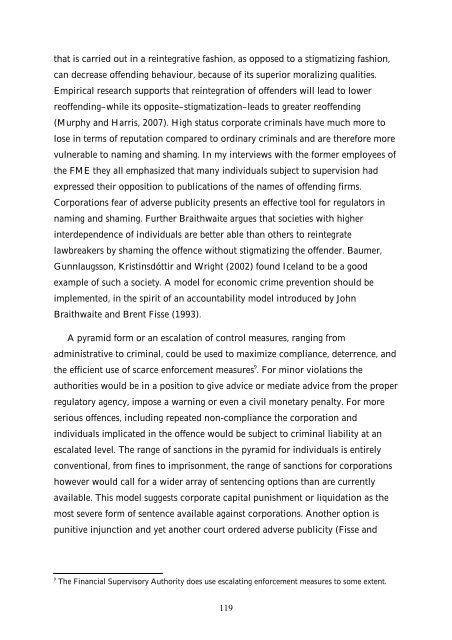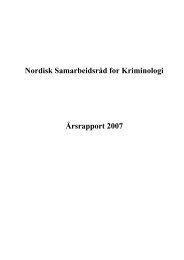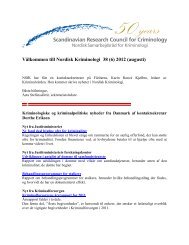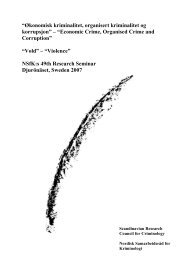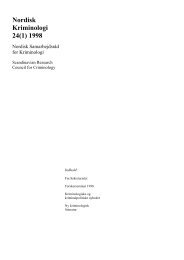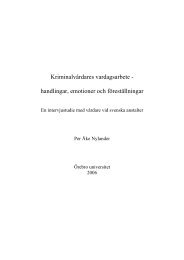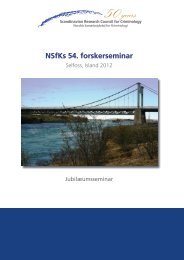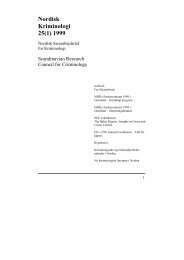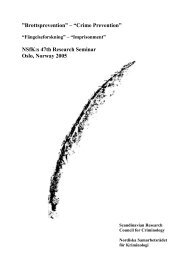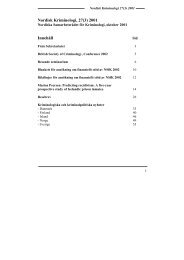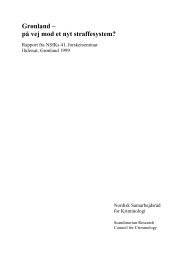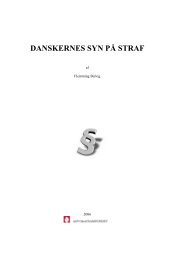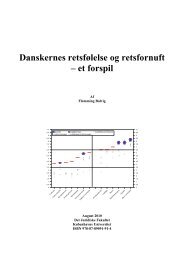Økonomisk Kriminalitet Nordiske Perspektiver - Scandinavian ...
Økonomisk Kriminalitet Nordiske Perspektiver - Scandinavian ...
Økonomisk Kriminalitet Nordiske Perspektiver - Scandinavian ...
Create successful ePaper yourself
Turn your PDF publications into a flip-book with our unique Google optimized e-Paper software.
that is carried out in a reintegrative fashion, as opposed to a stigmatizing fashion,<br />
can decrease offending behaviour, because of its superior moralizing qualities.<br />
Empirical research supports that reintegration of offenders will lead to lower<br />
reoffending–while its opposite–stigmatization–leads to greater reoffending<br />
(Murphy and Harris, 2007). High status corporate criminals have much more to<br />
lose in terms of reputation compared to ordinary criminals and are therefore more<br />
vulnerable to naming and shaming. In my interviews with the former employees of<br />
the FME they all emphasized that many individuals subject to supervision had<br />
expressed their opposition to publications of the names of offending firms.<br />
Corporations fear of adverse publicity presents an effective tool for regulators in<br />
naming and shaming. Further Braithwaite argues that societies with higher<br />
interdependence of individuals are better able than others to reintegrate<br />
lawbreakers by shaming the offence without stigmatizing the offender. Baumer,<br />
Gunnlaugsson, Kristinsdóttir and Wright (2002) found Iceland to be a good<br />
example of such a society. A model for economic crime prevention should be<br />
implemented, in the spirit of an accountability model introduced by John<br />
Braithwaite and Brent Fisse (1993).<br />
A pyramid form or an escalation of control measures, ranging from<br />
administrative to criminal, could be used to maximize compliance, deterrence, and<br />
the efficient use of scarce enforcement measures 9 . For minor violations the<br />
authorities would be in a position to give advice or mediate advice from the proper<br />
regulatory agency, impose a warning or even a civil monetary penalty. For more<br />
serious offences, including repeated non-compliance the corporation and<br />
individuals implicated in the offence would be subject to criminal liability at an<br />
escalated level. The range of sanctions in the pyramid for individuals is entirely<br />
conventional, from fines to imprisonment, the range of sanctions for corporations<br />
however would call for a wider array of sentencing options than are currently<br />
available. This model suggests corporate capital punishment or liquidation as the<br />
most severe form of sentence available against corporations. Another option is<br />
punitive injunction and yet another court ordered adverse publicity (Fisse and<br />
<br />
9 The Financial Supervisory Authority does use escalating enforcement measures to some extent.<br />
119


